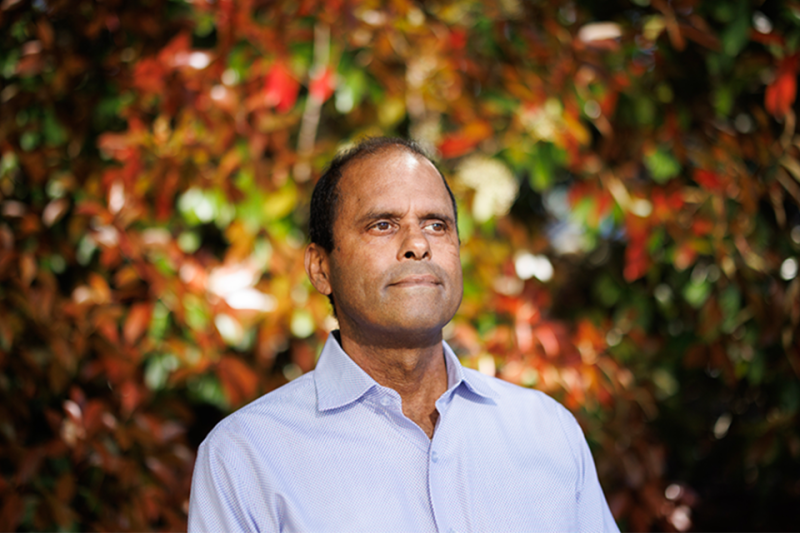
Health experts at Duke University School of Medicine—including Duke Psychiatry's Rajendra Morey, MD—are scrutinizing the myriad ways in which shifting environmental conditions, from sweltering temperatures to severe storms, shape our well-being.
In university laboratories, North Carolina homes and on the coastlines of faraway places, they've learned not everyone is equally at risk. Their efforts involve pinpointing solutions to help those susceptible to environmental disruptions, which could affect respiratory and cardiovascular health, food security, infection resilience, and mental health.
Tracking Mental Health Storms
As temperatures climb, so can tempers, and it's no secret that heat waves can fuel aggression and violent crime. But as climate change churns up more hurricanes, the storms can also bring a flood of emotions, according to research by Rajendra A. Morey, MD, a psychiatrist and professor of psychiatry and behavioral health at Duke School of Medicine.

He studies brain changes associated with post-traumatic stress disorder, and after reading “An Uninhabitable Earth,” he turned his attention to an area that’s just beginning to be researched: the interconnectedness of climate change, displacement, and mental health.
Data from the U.S. Census shows 2.5 million people were forced from homes last year because of extreme weather. Such events are bound to trigger despair. The stress could be ongoing as hurricane seasons lengthen, meaning months of worrying if the next storm could wash away a home and livelihood. Among those living in Florida’s Miami-Dade and Broward counties, Morey’s 2021 study found an increase in symptoms of depression, anxiety, and PTSD following major storms. Wildfires are also scorching homes, jobs, and psyches.
“You can’t stockpile mental health services. But alongside efforts to rebuild infrastructure, economy and provide medical care, we should be including mental health services in our disaster responses.”
— Rajendra Morey, MD
Visit the School of Medicine's website to read the full article in Magnify, the School of Medicine's online magazine.